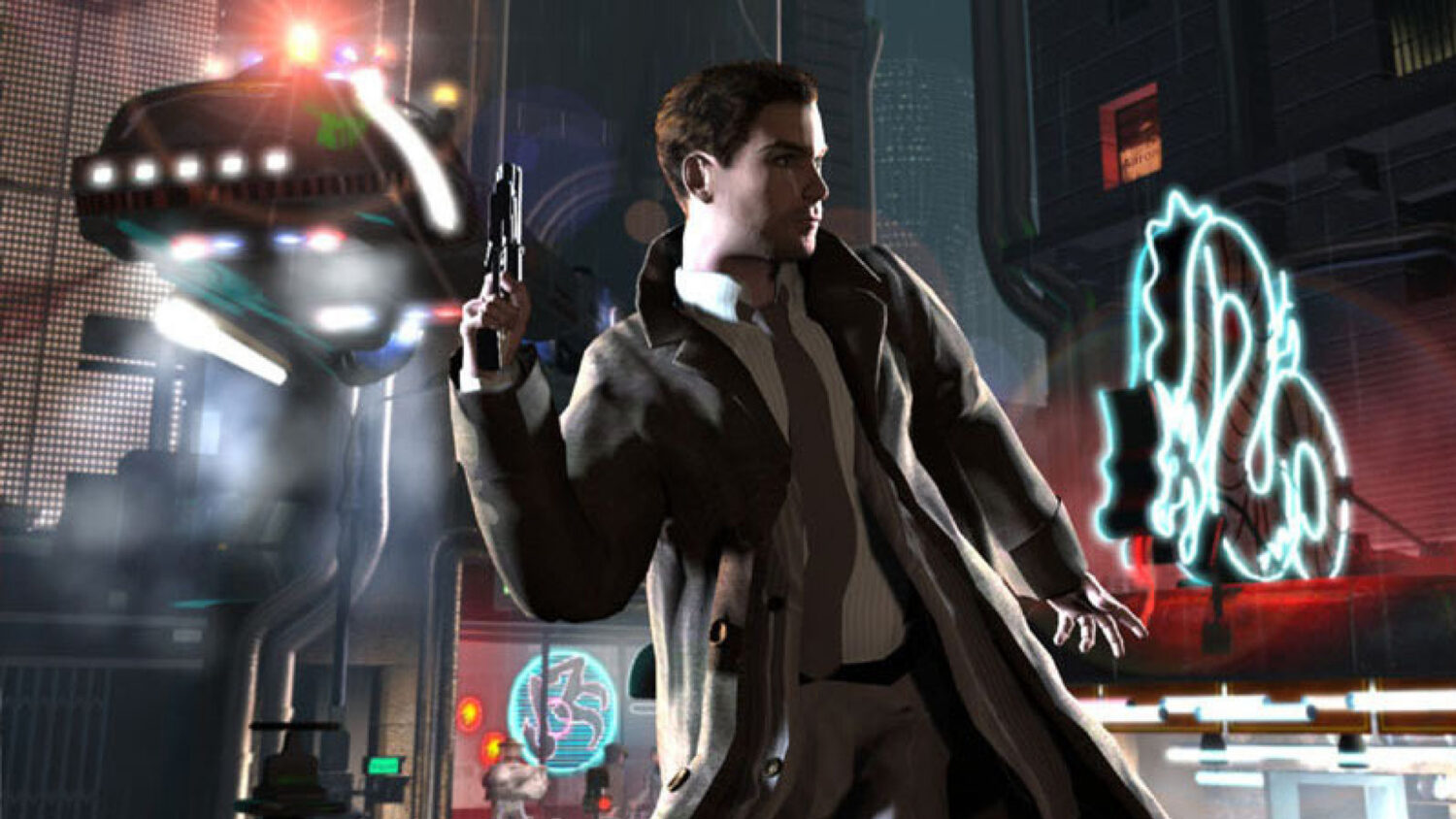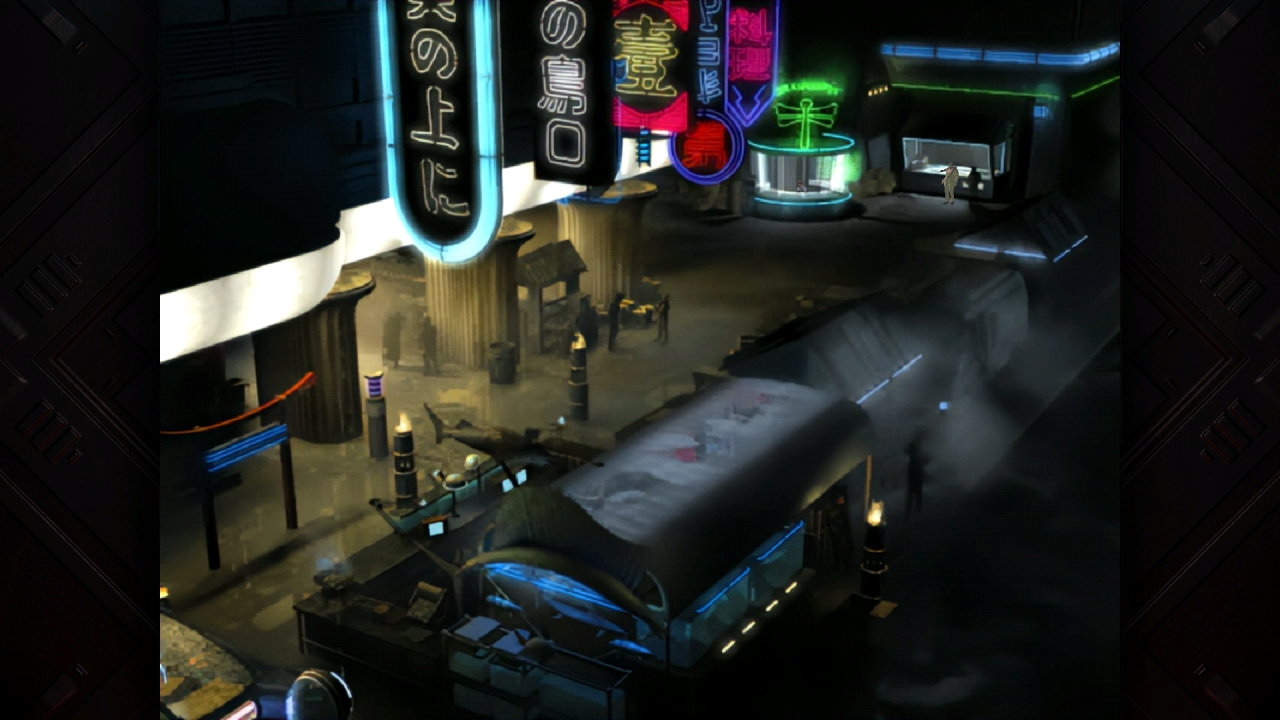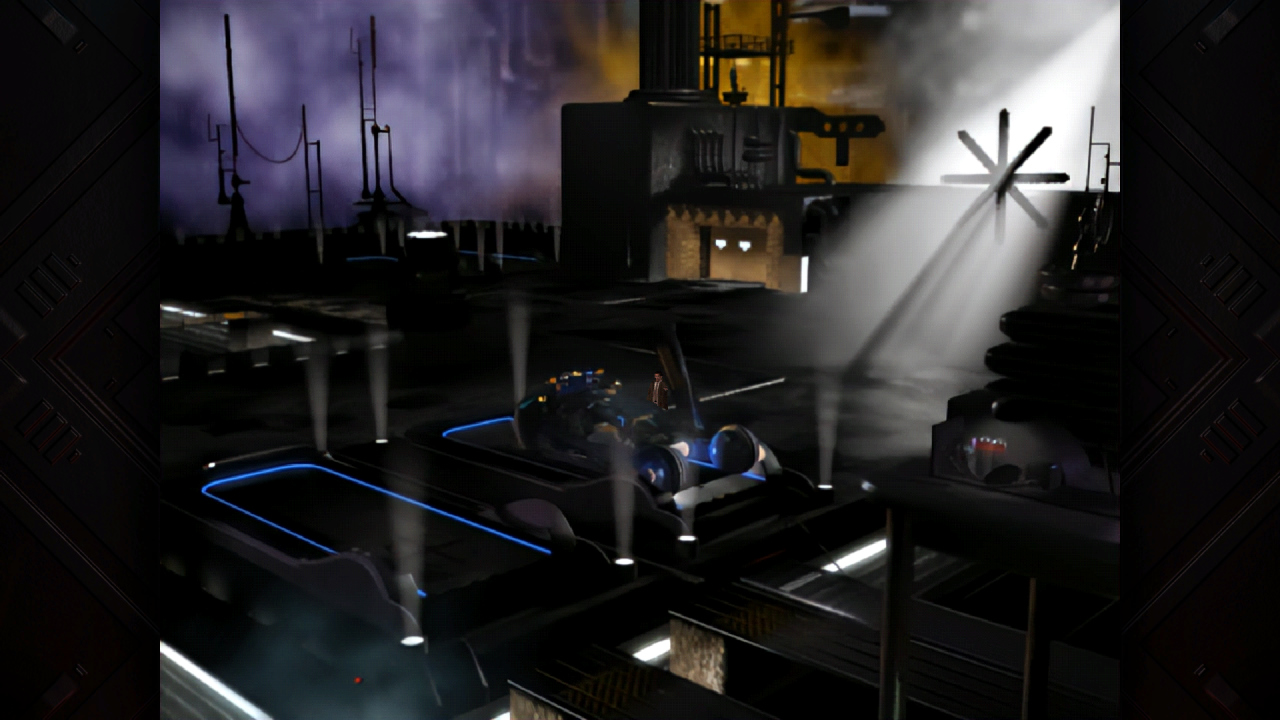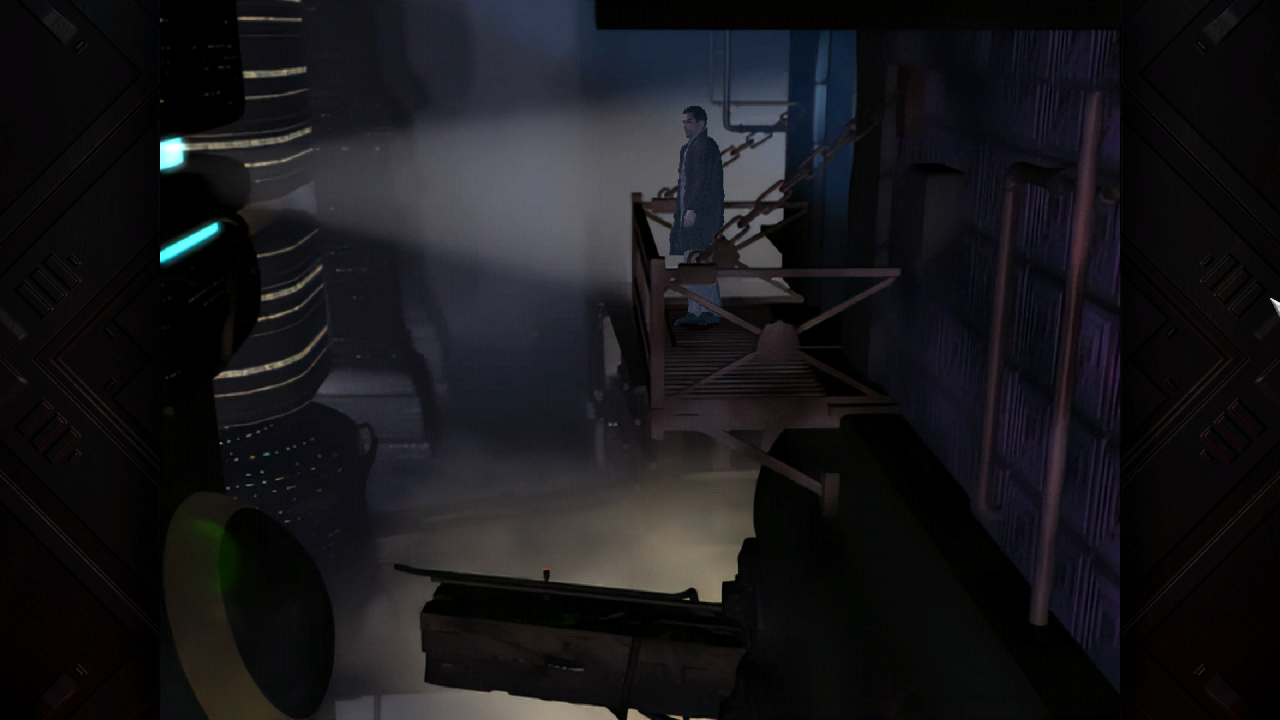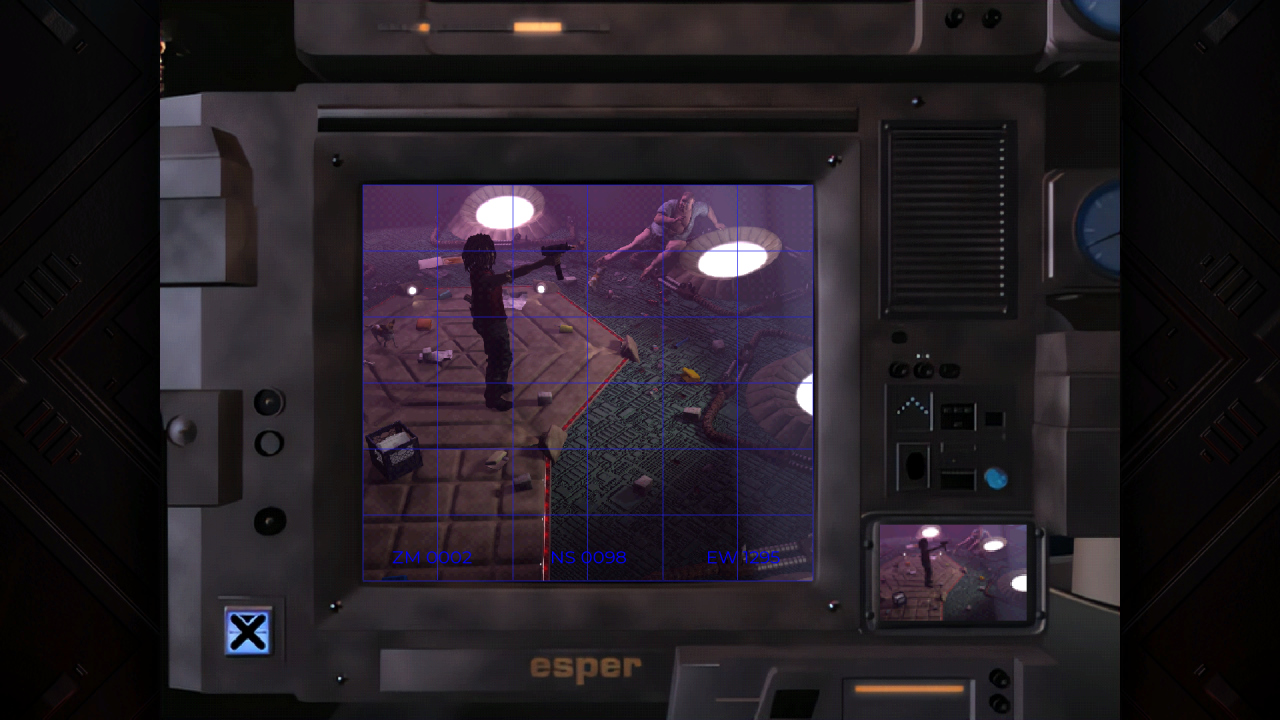A replicant that should be retired.
When I heard that I got dibs on Nightdive Studios’ release of Blade Runner: Enhanced Edition I was very hopeful, as I’m fond of the original movie. I understood this would be just a part of the Blade Runner universe, not the original story, but I was quite alright with that. So, how did it go with this particular adventure game?
Let’s start with the “what you get” portion of the review. Blade Runner: Enhanced Edition is a story-based adventure set in the Blade Runner universe of the original movie. The visuals are very much like the movie (including the iconic billboard of a lady taking a pill), but not as smooth (more on this later). The visuals are accordingly dark and moody; the city feels dirty, cloying, and oppressive.
The story puts you in the role of a young detective in the Blade Runner Division. Your character is eager to prove yourself and ready to take on your mission—not at all jaded like the older Blade Runners. As you visit different locations—like the crime scene, Chinatown, the police HQ, and your apartment—you get to collect and analyze clues, interview witnesses, and so on. You have some handy tools to help you with the management of clues. There is, as in the movie, an ESPER unit which lets you zoom in and “look around” in pictures, as well as a database tool that keeps a catalog of all your clues and lets you access/review them at any time.
In the police HQ, you have access to prisoners you can question, a lab which can provide information about evidence you collected, a database update interface, a shooting range, and an antagonistic boss. At your apartment, there is an additional ESPER unit you can use to peruse your crime scene pictures. When you visit Chinatown, there are people to interview and encounters to be had. Be careful how you go about dealing with the NPCs; you can miss a clue or an interaction and the game will not let you go back and get it. Some opportunities are either had “just right” or not at all and can affect the outcome of the game. Don’t worry if you fail (or die); you can start again. One little side-effect of restarting is that you won’t know who the replicants are anymore; the game assigns human/replicant status randomly at the start of the game so you can’t just breeze through after hitting the wall.
Now for some of the more critical evaluation, and there is plenty about which to be critical. This remastered version of Westwood Studios’ original 1997 release arrived on the Switch back in June, and this review is of an updated version that patched some reported bugs and issues. Sadly, it didn’t patch enough.
As mentioned above, the visuals are not what you might expect. I get the dark and gritty atmosphere. However, the game is too dark. I don’t mean emotionally, it’s just too dark to see things. There are some settings you can adjust, but it doesn’t help enough.
With evidence and clues, you need to hover your pointer over them to inspect them. With the low light and contrast levels you end up spending too much time running your pointer over every square millimeter just hoping to stumble on a clue. (Speaking of your pointer, I noticed some pointer drift going on in this game. I checked a few other games but the problem only seems to be happening in BR:EE.) Not only is Blade Runner: Enhanced Edition on the dark side, it is far too grainy, like a music video from the late ‘90s. The audio effects are OK in general, but the footfalls could use a little work.
As for the story and gameplay, there is room for improvement here, as well. I encountered at least one total game crash. This may have been random, but with the rest of the issues, I have to wonder. The game has no tutorial, so you are on your own to learn how to use your ESPER unit, the clue database, your weapon, and everything else. A quick run-through would be very helpful.
Some of the controls are not the most intuitive, either. To get into your clue database, you hover the pointer over yourself and press the A button. Once in the clue database, navigation is a bit dodgy.
The gameplay, following leads and making your way through the story, is equally frustrating. As noted earlier, there are clues you can miss and opportunities to talk to NPCs which can be missed, never to return. I get there can be elements which are timing sensitive, but if they can have a significant outcome on the game, it may be worth granting the player a little grace. Also, there is a lot of running around revisiting sites without any indicators you are actually making any progress. Sometimes, it feels like you are just burning time, waiting for something to happen. I did find out that running to and from places on the map can be dangerous. I went back to the apartment and got jumped, beaten, and killed. Game over. The real bummer is there was no way to try to defend myself (I mashed lots of buttons).
All things considered, this game is not ready for prime time. I really wanted to like Blade Runner: Enhanced Edition, but there are issues with almost everything from how it looks to how it plays, making it really disappointing.
Review: Blade Runner: Enhanced Edition (Nintendo Switch)
Subpar
If you are really into the Blade Runner franchise and can put up with the shortcomings, I suppose you can get some enjoyment from Blade Runner: Enhanced Edition. Everyone else should take a pass on this remastered adventure game. Maybe if the studio comes out with a “More Enhanced” edition, with plenty more fixes in place, it may be worth another look.

